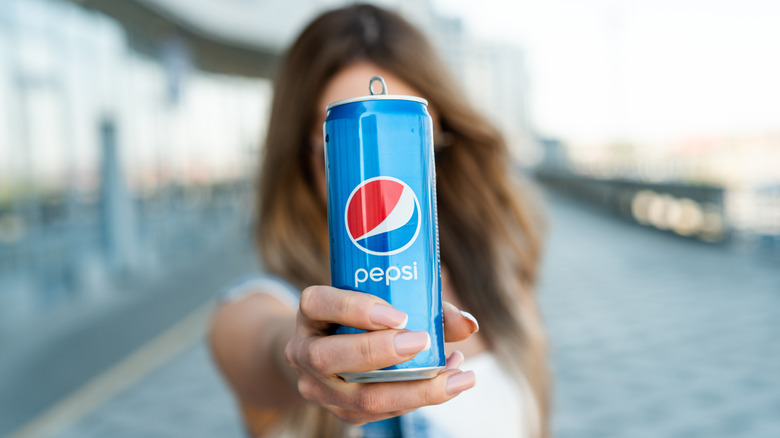
Sugar and caffeine are two substances that provide a similar outcome: energy. If both give us energy, do they function the same way? Not exactly. Caffeine is a stimulant that acts on your central nervous system (via How Stuff Works). It attaches to the adenosine receptors in your brain, preventing adenosine from carrying out its usual role of slowing down nerve cells, which makes you feel drowsy. When caffeine binds to these receptors, the nerve cells accelerate instead. This results in the surge of energy you feel after consuming coffee or an energy drink. However, despite feeling more energetic, caffeine does not actually supply you with energy.
This is where sugar plays a role. Sugar is absorbed into the bloodstream and utilized as energy throughout the body (via Inside Science). Many foods break down into sugars during digestion, providing us with sustained energy throughout the day. While sugar won’t give you an instant energy boost like caffeine, it does supply your body with fuel to help keep you energized over longer periods.
Are sugar and caffeine bad for you?

Both sugar and caffeine can offer some benefits but may be harmful if consumed excessively. While natural sugars found in whole foods can provide sustained energy, processed sugar can lead to various health issues. According to Eat This, Not That!, our bodies don’t handle large amounts of refined sugar well, leading to side effects like nausea and digestive problems. “Too much white sugar won’t help you if you’re trying to promote healthy bacteria in your system,” stated Brigitte Zeitlin, MPH, RD, CDN. A diet high in sugar has been linked to joint pain, weight gain, bloating, high blood pressure, and decreased motivation.
Caffeine, in general, is slightly better for you compared to sugar. The Food and Drug Administration (FDA) considers moderate caffeine intake to be safe, provided you stay within the recommended daily limit of 400 milligrams per day (Medical News Today). However, excessive caffeine can exacerbate symptoms of anxiety and depression, raise blood pressure, and cause heart-related issues.




